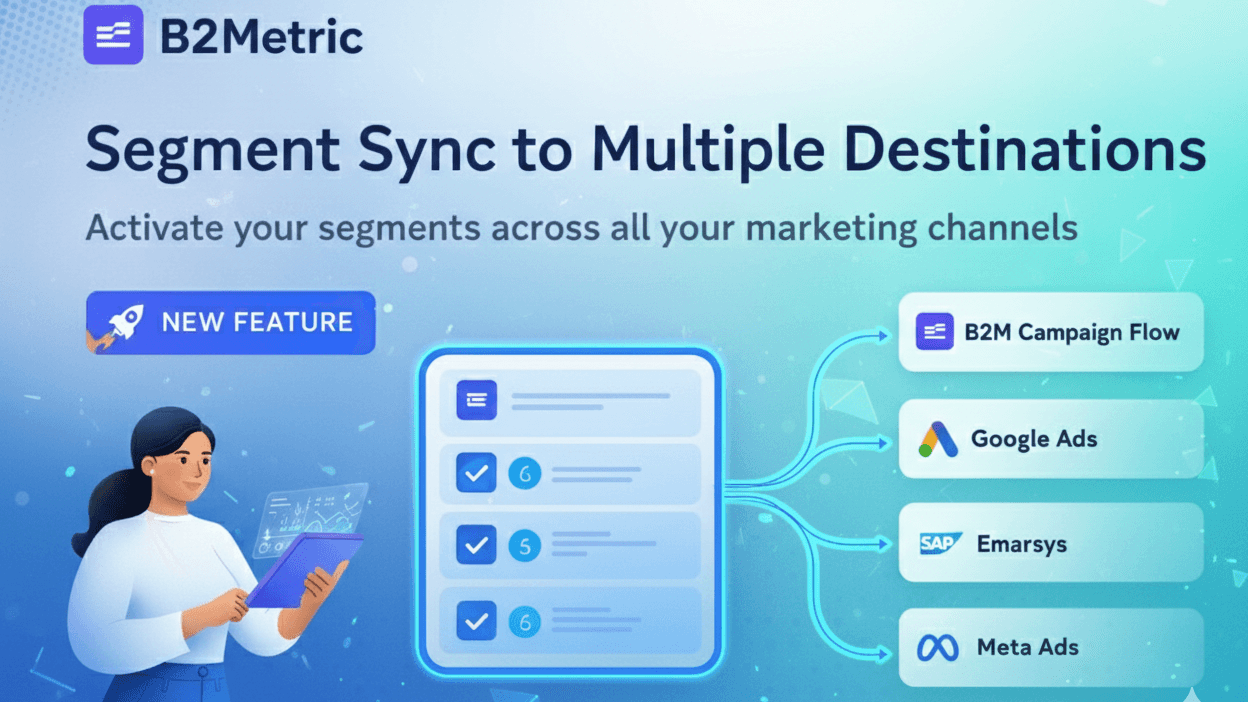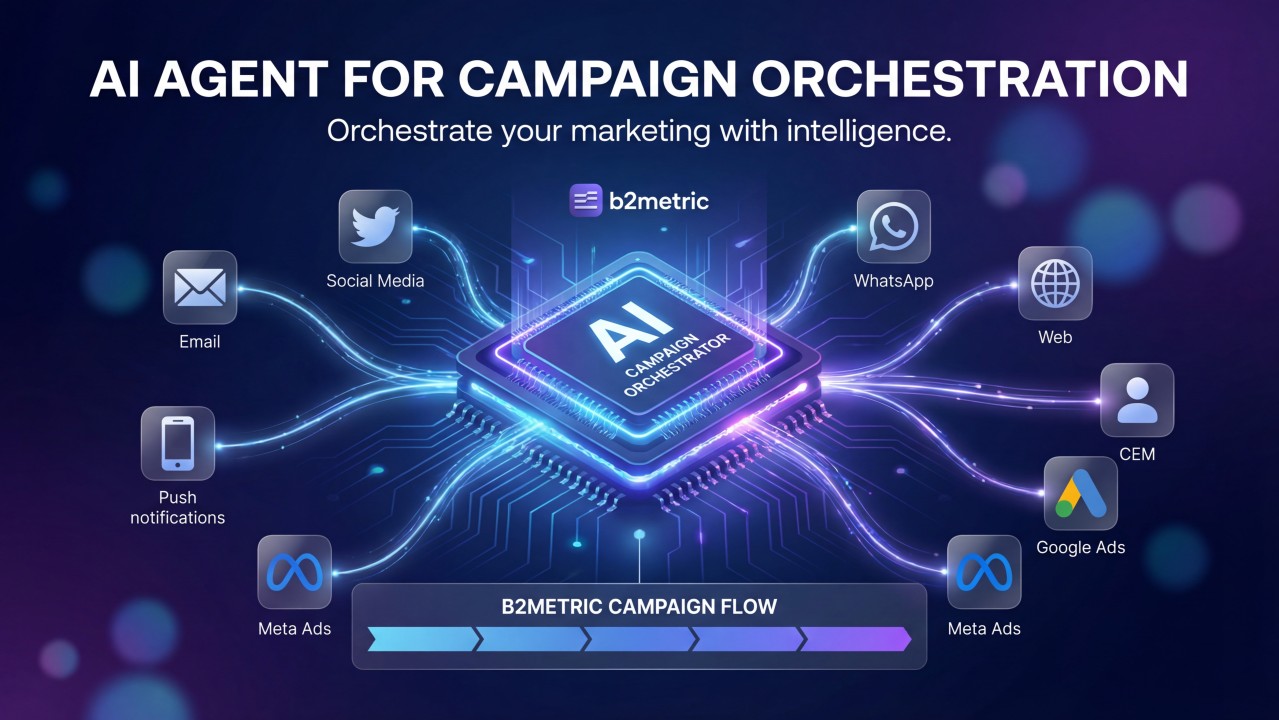Marketing and Analytics

Can Dinlenç
•
•
•
March 1, 2024
Mar 1, 2024
Mar 1, 2024
Mar 1, 2024




What is Database Marketing?
Database marketing is a form of direct marketing that uses customer databases to generate personalized communications to promote a product or service. Unlike traditional marketing, which relies on general advertising efforts, database marketing leverages data to target and tailor marketing messages. This approach allows companies to reach customers with relevant, personalized content, resulting in increased engagement and conversions. For a deeper dive into how data analysis plays a crucial role in this process, explore data analysis tools that can enhance the effectiveness of your database marketing strategies.
Customer Data Used in Database Marketing Strategies
The heart of database marketing lies in the data itself. Marketers collect and analyze various types of customer data, including demographic information, purchase history, browsing behavior, and customer feedback. This data is then used to create detailed customer profiles and segments, allowing for more targeted and relevant marketing efforts. Effective audience building is essential to ensure that marketing messages are not only reaching the right people but are also tailored to their specific interests and needs.
The Sources of Customer Data at Database Marketing
Customer data for database marketing is gathered from multiple sources. These include online transactions, website visits, social media interactions, and direct customer interactions through surveys or support channels. By integrating data from these diverse sources, marketers can gain a comprehensive understanding of their customers and develop more effective strategies for segmentation.
Benefits of Database Marketing
Database marketing offers numerous benefits to businesses. It enables personalized communication, which can lead to higher customer satisfaction and loyalty. Additionally, it helps in identifying potential new customers and understanding the needs and behaviors of existing ones. This, in turn, results in more efficient marketing spend and better ROI. By focusing on the benefits of data analysis, companies can optimize their marketing strategies and achieve better results.
Customer Segmentation for Marketing Strategies With Data
One of the key components of database marketing is customer segmentation. This involves dividing a company's customer base into distinct groups based on specific criteria, such as purchasing habits, demographics, or interests. Effective segmentation allows for more precise targeting and personalized marketing messages, which can lead to higher engagement rates and improved conversion rates.
Challenges of Database Marketing
Despite its advantages, database marketing also presents several challenges. These include data privacy concerns, the need for accurate and up-to-date data, and the complexity of managing large volumes of data. Marketers must also ensure that their strategies comply with data protection regulations and respect customer privacy. Overcoming these challenges is crucial to the successful implementation of a database marketing strategy.
Database Marketing Tactics and Strategies
There are various tactics and strategies that can be employed in database marketing. These include targeted email campaigns, personalized content, and loyalty programs. Marketers can also use predictive analytics to anticipate customer needs and tailor their offerings accordingly. By continuously refining their strategies and leveraging the latest marketing database software, businesses can stay ahead of the competition and maximize the impact of their marketing efforts.
What is Database Marketing?
Database marketing is a form of direct marketing that uses customer databases to generate personalized communications to promote a product or service. Unlike traditional marketing, which relies on general advertising efforts, database marketing leverages data to target and tailor marketing messages. This approach allows companies to reach customers with relevant, personalized content, resulting in increased engagement and conversions. For a deeper dive into how data analysis plays a crucial role in this process, explore data analysis tools that can enhance the effectiveness of your database marketing strategies.
Customer Data Used in Database Marketing Strategies
The heart of database marketing lies in the data itself. Marketers collect and analyze various types of customer data, including demographic information, purchase history, browsing behavior, and customer feedback. This data is then used to create detailed customer profiles and segments, allowing for more targeted and relevant marketing efforts. Effective audience building is essential to ensure that marketing messages are not only reaching the right people but are also tailored to their specific interests and needs.
The Sources of Customer Data at Database Marketing
Customer data for database marketing is gathered from multiple sources. These include online transactions, website visits, social media interactions, and direct customer interactions through surveys or support channels. By integrating data from these diverse sources, marketers can gain a comprehensive understanding of their customers and develop more effective strategies for segmentation.
Benefits of Database Marketing
Database marketing offers numerous benefits to businesses. It enables personalized communication, which can lead to higher customer satisfaction and loyalty. Additionally, it helps in identifying potential new customers and understanding the needs and behaviors of existing ones. This, in turn, results in more efficient marketing spend and better ROI. By focusing on the benefits of data analysis, companies can optimize their marketing strategies and achieve better results.
Customer Segmentation for Marketing Strategies With Data
One of the key components of database marketing is customer segmentation. This involves dividing a company's customer base into distinct groups based on specific criteria, such as purchasing habits, demographics, or interests. Effective segmentation allows for more precise targeting and personalized marketing messages, which can lead to higher engagement rates and improved conversion rates.
Challenges of Database Marketing
Despite its advantages, database marketing also presents several challenges. These include data privacy concerns, the need for accurate and up-to-date data, and the complexity of managing large volumes of data. Marketers must also ensure that their strategies comply with data protection regulations and respect customer privacy. Overcoming these challenges is crucial to the successful implementation of a database marketing strategy.
Database Marketing Tactics and Strategies
There are various tactics and strategies that can be employed in database marketing. These include targeted email campaigns, personalized content, and loyalty programs. Marketers can also use predictive analytics to anticipate customer needs and tailor their offerings accordingly. By continuously refining their strategies and leveraging the latest marketing database software, businesses can stay ahead of the competition and maximize the impact of their marketing efforts.
What is Database Marketing?
Database marketing is a form of direct marketing that uses customer databases to generate personalized communications to promote a product or service. Unlike traditional marketing, which relies on general advertising efforts, database marketing leverages data to target and tailor marketing messages. This approach allows companies to reach customers with relevant, personalized content, resulting in increased engagement and conversions. For a deeper dive into how data analysis plays a crucial role in this process, explore data analysis tools that can enhance the effectiveness of your database marketing strategies.
Customer Data Used in Database Marketing Strategies
The heart of database marketing lies in the data itself. Marketers collect and analyze various types of customer data, including demographic information, purchase history, browsing behavior, and customer feedback. This data is then used to create detailed customer profiles and segments, allowing for more targeted and relevant marketing efforts. Effective audience building is essential to ensure that marketing messages are not only reaching the right people but are also tailored to their specific interests and needs.
The Sources of Customer Data at Database Marketing
Customer data for database marketing is gathered from multiple sources. These include online transactions, website visits, social media interactions, and direct customer interactions through surveys or support channels. By integrating data from these diverse sources, marketers can gain a comprehensive understanding of their customers and develop more effective strategies for segmentation.
Benefits of Database Marketing
Database marketing offers numerous benefits to businesses. It enables personalized communication, which can lead to higher customer satisfaction and loyalty. Additionally, it helps in identifying potential new customers and understanding the needs and behaviors of existing ones. This, in turn, results in more efficient marketing spend and better ROI. By focusing on the benefits of data analysis, companies can optimize their marketing strategies and achieve better results.
Customer Segmentation for Marketing Strategies With Data
One of the key components of database marketing is customer segmentation. This involves dividing a company's customer base into distinct groups based on specific criteria, such as purchasing habits, demographics, or interests. Effective segmentation allows for more precise targeting and personalized marketing messages, which can lead to higher engagement rates and improved conversion rates.
Challenges of Database Marketing
Despite its advantages, database marketing also presents several challenges. These include data privacy concerns, the need for accurate and up-to-date data, and the complexity of managing large volumes of data. Marketers must also ensure that their strategies comply with data protection regulations and respect customer privacy. Overcoming these challenges is crucial to the successful implementation of a database marketing strategy.
Database Marketing Tactics and Strategies
There are various tactics and strategies that can be employed in database marketing. These include targeted email campaigns, personalized content, and loyalty programs. Marketers can also use predictive analytics to anticipate customer needs and tailor their offerings accordingly. By continuously refining their strategies and leveraging the latest marketing database software, businesses can stay ahead of the competition and maximize the impact of their marketing efforts.
Table of contents
Recent blog posts

Murat Hacioglu
•
Feb 13, 2026
Unleash Your Segments: Meet Multi-Destination Campaign Sync!
Unleash Your Segments: Meet Multi-Destination Campaign Sync!
Marketing and Analytics
Marketing and Analytics

Murat Hacioglu
•
Feb 11, 2026
The Marketing Nightmare Ends Here: Goodbye Manual Grunt Work, Hello Intelligent Growth!
The Marketing Nightmare Ends Here: Goodbye Manual Grunt Work, Hello Intelligent Growth!
Marketing and Analytics
Marketing and Analytics

Murat Hacioglu
•
Jan 26, 2026
B2M Campaign Revenue Booster for Telecom: From Campaign Execution to Incremental Revenue
B2M Campaign Revenue Booster for Telecom: From Campaign Execution to Incremental Revenue
Marketing and Analytics
Marketing and Analytics
Related Blogs
Related Blogs



Murat Hacioglu
•
•
•
Feb 13, 2026
Unleash Your Segments: Meet Multi-Destination Campaign Sync!
Unleash Your Segments: Meet Multi-Destination Campaign Sync!
Marketing and Analytics



Murat Hacioglu
•
•
•
Feb 11, 2026
The Marketing Nightmare Ends Here: Goodbye Manual Grunt Work, Hello Intelligent Growth!
The Marketing Nightmare Ends Here: Goodbye Manual Grunt Work, Hello Intelligent Growth!
Marketing and Analytics



Murat Hacioglu
•
•
•
Jan 26, 2026
B2M Campaign Revenue Booster for Telecom: From Campaign Execution to Incremental Revenue
B2M Campaign Revenue Booster for Telecom: From Campaign Execution to Incremental Revenue
Marketing and Analytics

Product
Resources
Top Blogs
Copyright © 2025 B2Metric | All Rights Reserved

Product
Resources
Copyright © 2025 B2Metric | All Rights Reserved
Product
Subscribe to our newsletter!
Copyright © 2025 B2Metric | All Rights Reserved

Product
Subscribe to our newsletter!
Copyright © 2025 B2Metric | All Rights Reserved







